Digital Detoxing: Getting off your iPhone and into the nearest forest
Are you the kind of person who checks your phone as soon as you wake up? If so, you’re just like everyone else. It’s time for us all to step back from our phones, and into nature’s embrace. If only for a little while.
Picture the scene. You’re waking from a good night’s sleep, still dozy as you reach for your phone – but you can’t find it on the bedstand. Instantly, you’re jolted wide awake. Electrified, but in a bad way. While all along, it was right there, next to your pillow, after falling asleep following another night of scrolling.
This person might not be you. But it’s many of us. According to a recent study, 89 percent of Americans check their phone within 10 minutes of waking up. The phone is then exchanged for the laptop, then back to the phone, back to the laptop again, and on and on it goes.
The (digital) universe is expanding
There’s no escaping the fact that devices have become an integral part of our lives. They’re so entwined in our personal and professional lives that it’s hard to imagine a day without them.
And by all accounts, the connected lifestyle is not only here to stay – it’s getting bigger.
The digital world is an ever-expanding place with major tech companies putting a lot of effort into making the digital world an attractive competitor to the physical world.
But as with any societal upheaval, there’s a counter movement. Digital detoxing is a trend that has perhaps fallen out of popularity prematurely.
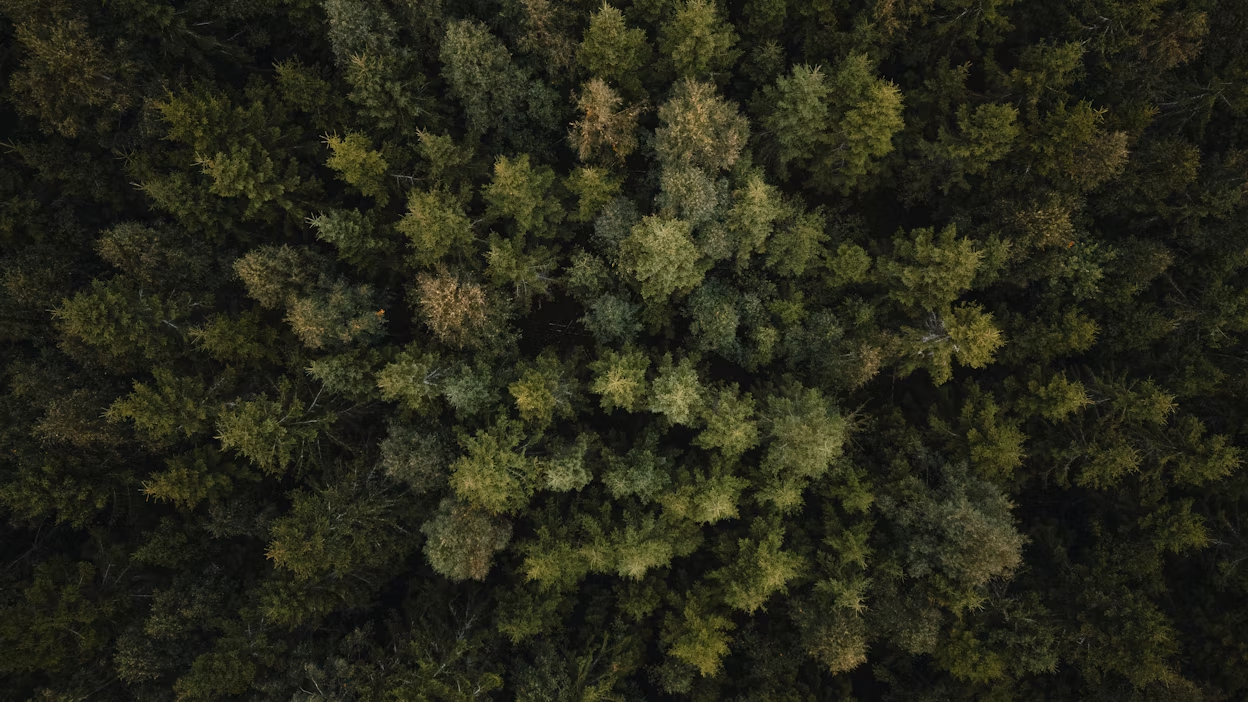
Digital detoxing: What is it?
Simply put, a digital detox is going screen-free for an extended period of time. No phones, no laptops, and no tablets. Stowing away all devices is meant to reduce stress, improve sleeping habits, reduce FOMO – and free up time to connect with yourself and reconnect with nature.
But isn’t all this easier said than done? There never seems to be a good time to go device-free (we think, skimming our online diaries). This is of course part of the problem – and the solution.
For those who don’t want to charge full speed into unknown territory, there are some easy starters. For instance, turning of notifications, limiting social media to 60 minutes, taking regular breaks to rest your eyes, and no scrolling before bedtime.
However, research suggests that going cold turkey is the most beneficial.
According to a case study by West Sweden tourism board, 72 hours could be the magic number to reduce stress. In their experiment, five people with stressful jobs got to experience the Swedish ‘close to nature’ lifestyle for three days, while researchers recorded their levels of stress.
What the researchers saw was an almost 70 percent decrease in stress levels, in addition to increases in creativity and overall well-being.
Reflecting on screen time
Most people have at some point reflected on how much time they spend in front of screens. But the reality may still surprise some.
A study published in 2021 found that Americans in their early twenties used their phones almost 29 hours per week on average in 2020. Another study puts the estimates even higher.
Still, it’s not easy striking the perfect balance between screen time and away time, with the digital world permeating almost all aspects of daily life. It’s just a matter of navigating the new way of the world.
That won't stop people from daydreaming of the time before the age of the iPhone. A recent study shows that 77 percent of Americans between the ages of 35-54 said they would like to return to a time before the internet and smartphones.
If we could make a time machine, we would. (Editor's note: We haven’t budgeted for 4th dimensional research this year. Or the ones to follow.) Instead, we present to you the next best thing: the Swedish forest.
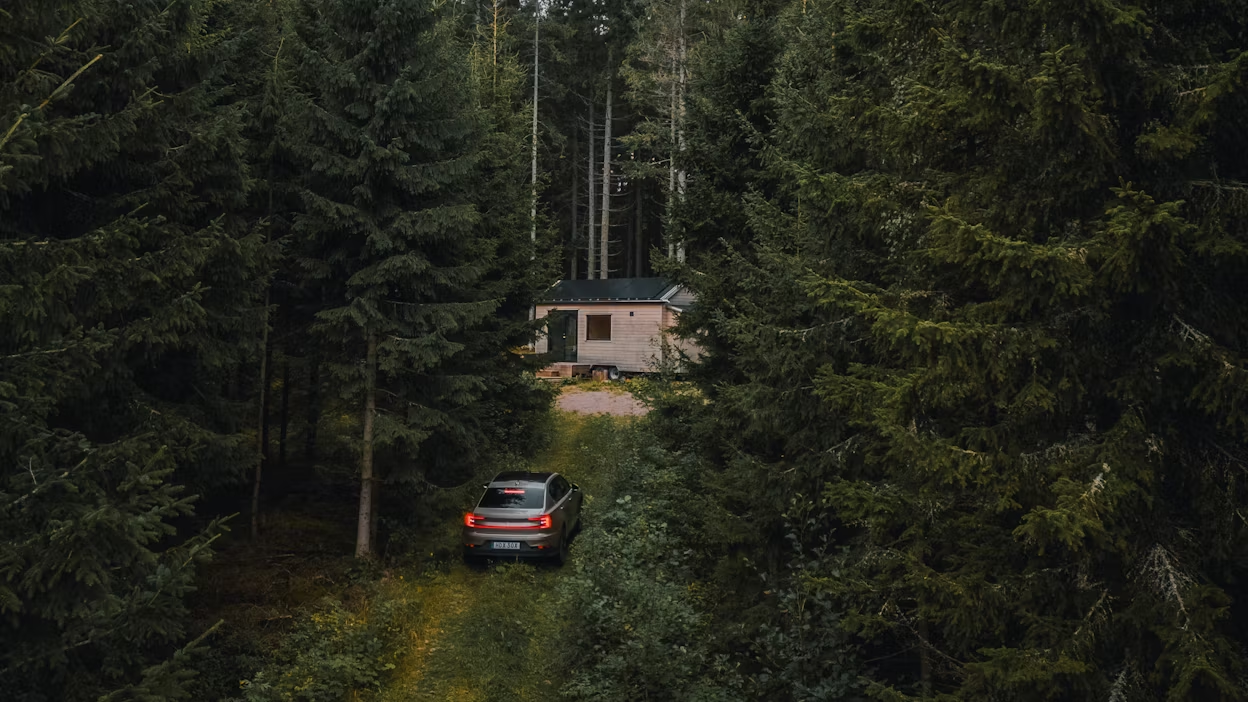
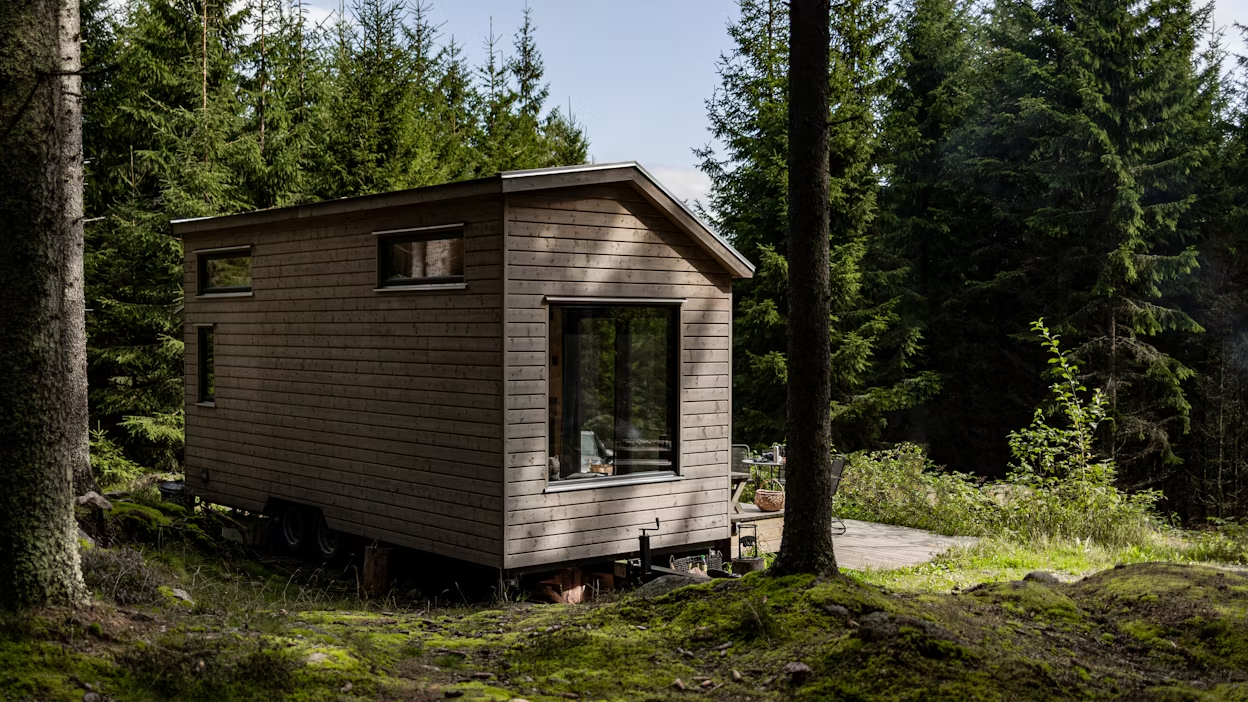
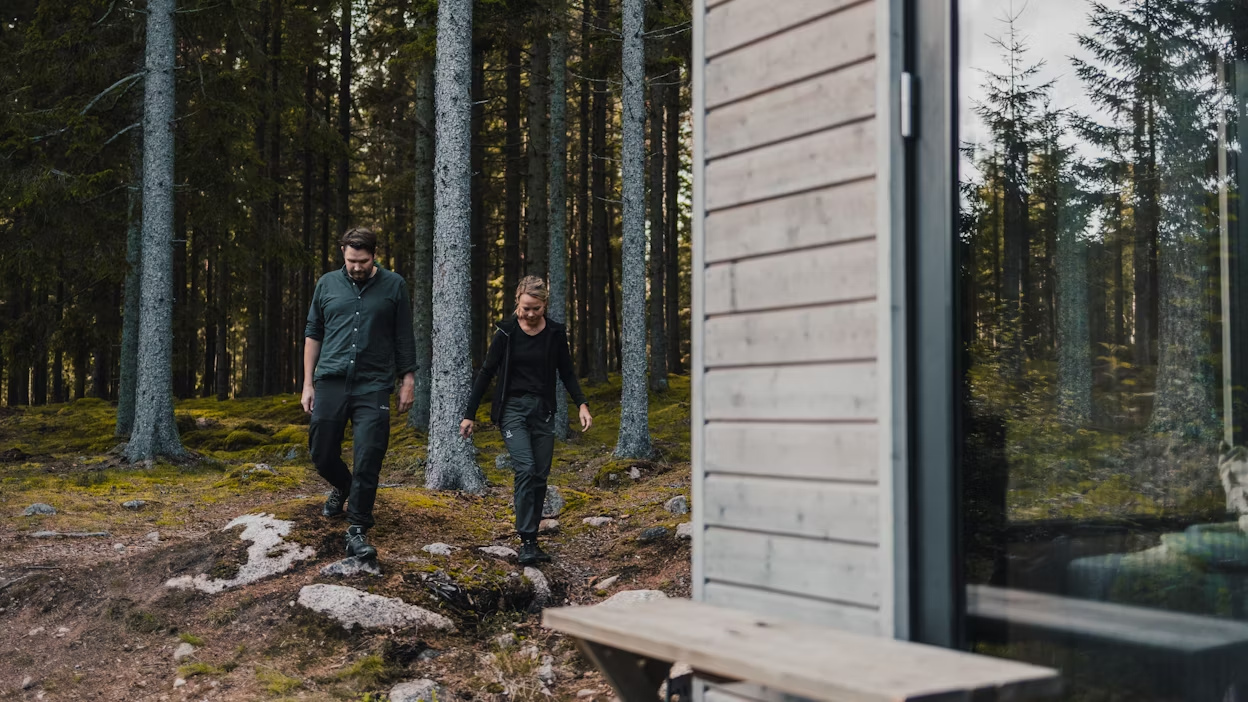
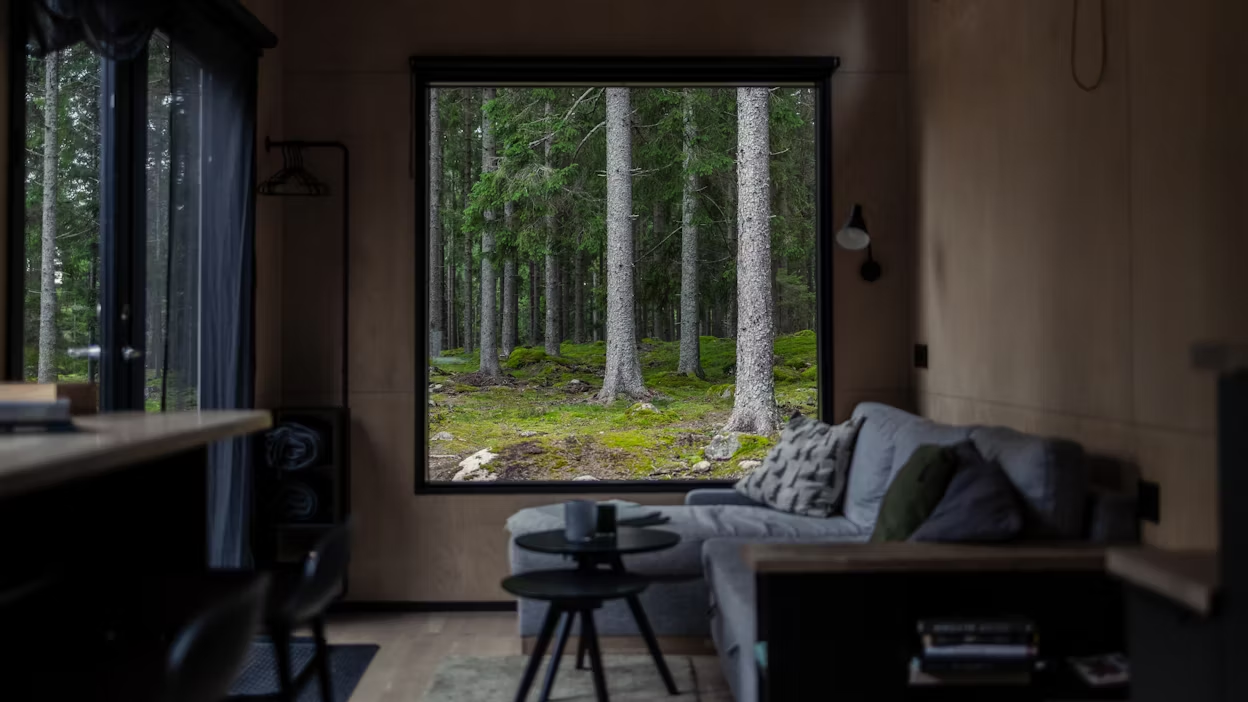
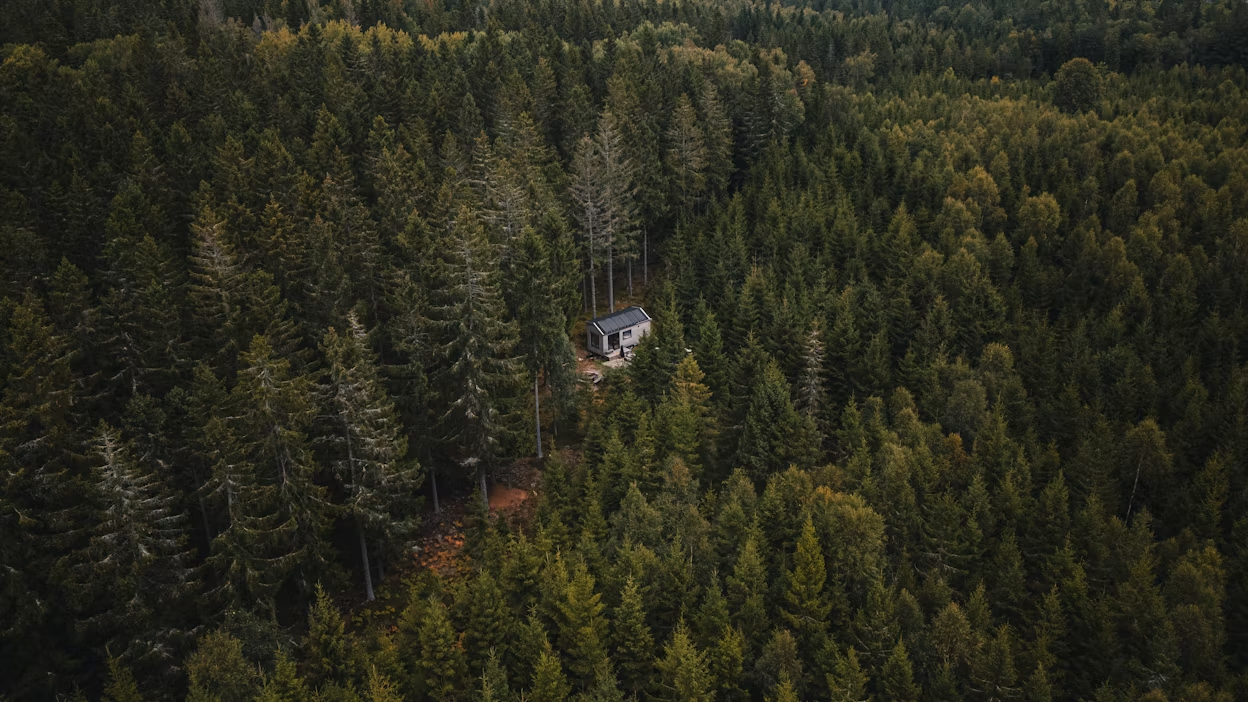
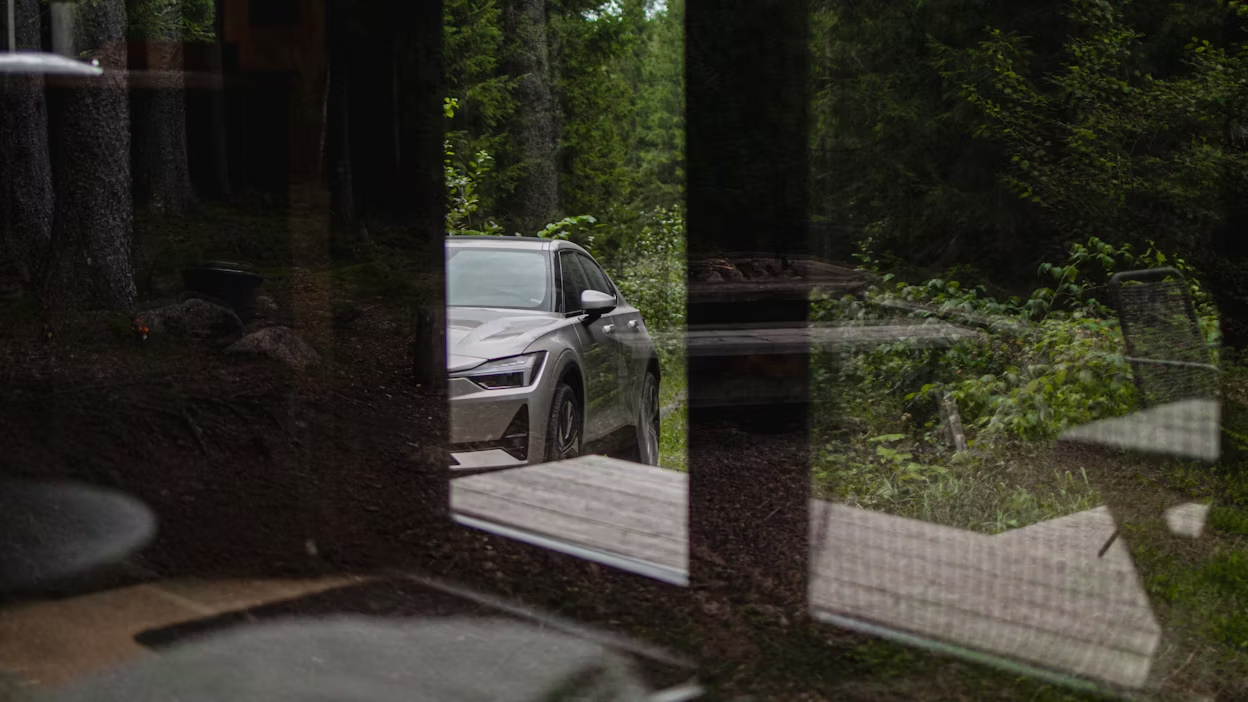






01/06
Unplugging seems to be what people want when they come to our cabins. It’s like people need to escape their daily lives to be able to really disconnect.
Going off-grid
Swedes love the forest. They kind of have to. Because it’s everywhere. Sweden is covered by roughly 70 percent of forest, which means that in many parts of the country, nature is just around the corner.
At INFOREST, it’s around every corner.
INFOREST is a set of off-grid, in-forest cabins managed by Hjo residents Jesper and Petra Uvesten. With a shared love of nature, they decided to pursue their dream of creating something that would bring people closer to it. And in 2020, they opened the doors to the first of what is now a total of four cabins in the middle of the forest.
There is a very personal touch in the details of the in-forest experience. Cabins Ebbe, Vilgot, and Esther are all named after their children. The fourth house is named after the family cat, Rufus.
The cabins in the woods
Closeness to nature was one of the guiding principles in creating this experience. But for Jesper and Petra, seclusion is equally important. The cabins are therefore self-sufficient, stand-alone entities separated by large areas of trees.
To operate self-sufficiently, each cabin is equipped with a set of solar panels, large lithium-ion batteries to store the solar power, and a 300-liter water tank. The water tank is connected to a meter inside the house which keeps the renter ever-so aware of the amount of water they have left.
Sure, the houses have electricity. But Wi-Fi and television are not on the list of amenities. Quite the contrary. Jesper and Petra encourage a screen-free stay. Unplugging is not enforced at INFOREST, but visitors are verbally encouraged at check-in to leave their phones in the assigned storage box.
Each cabin has one of these phone prisons with a label that reads “Forget that your phone is in this box.” And seemingly, people do. More than once, the pair have tried reaching their guests but have been sent to voicemail.
“Unplugging seems to be what people want when they come to our cabins. It’s like people need to escape their daily lives to be able to really disconnect,” comments Jesper.
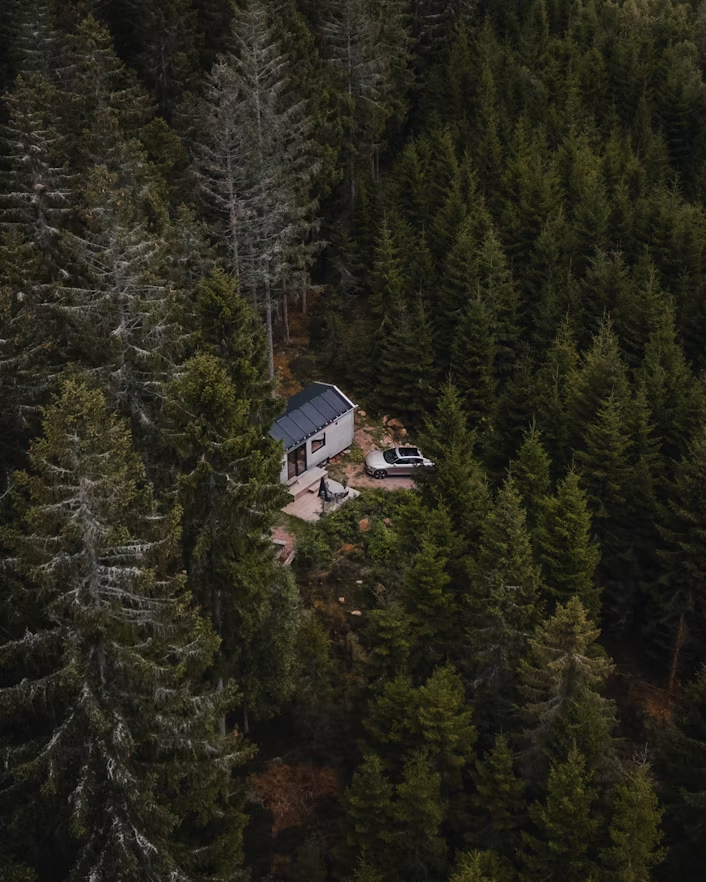
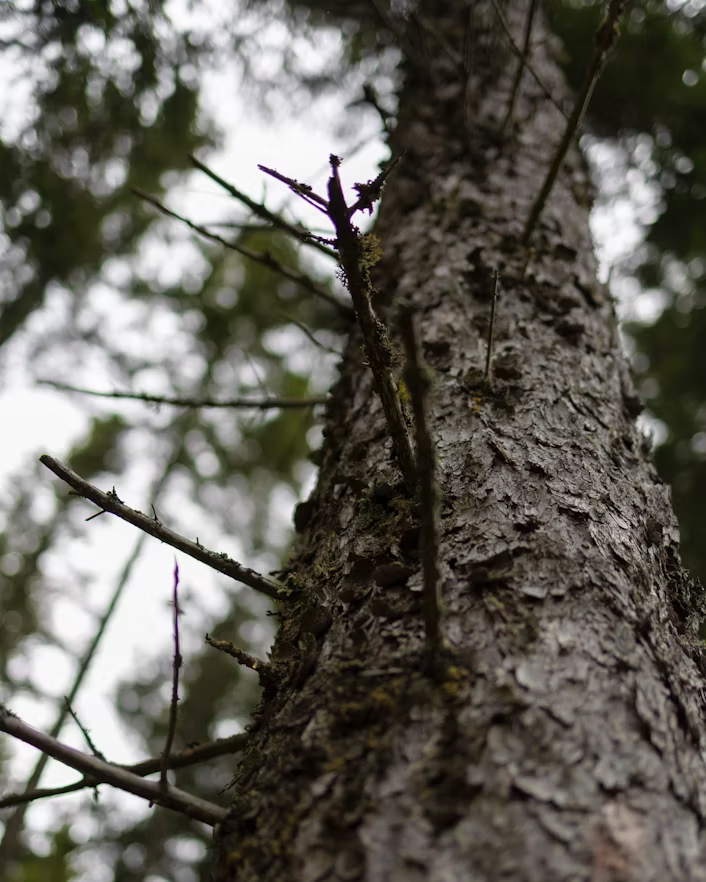
Time to disconnect to reconnect
For Jesper and Petra, time is a crucial ingredient in giving visitors the experience they intended. That is why they’ve set a two-night minimum for booking a stay in their cabins.
“We want to encourage people to allow themselves to spend more time in the forest,” says Jesper. “I mean, if you come late at night and leave in the morning, you could stay anywhere, right?”
So, do as the Swedes do. Go digital detoxing in a forest near you. If only for a little while.








